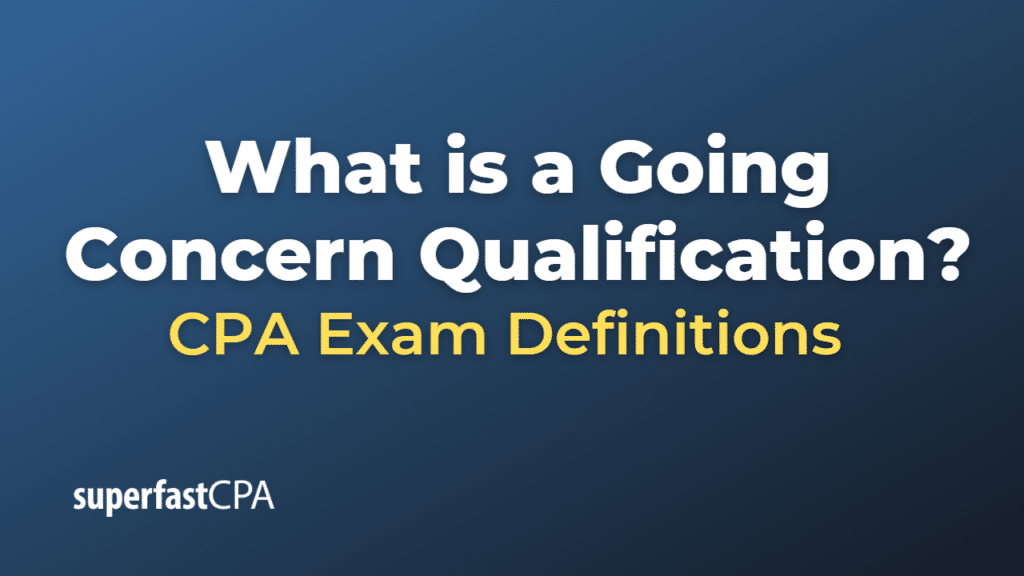Going Concern Qualification
A going concern qualification, sometimes referred to as a going concern opinion, is a statement made by an auditor indicating that there is substantial doubt about a company’s ability to continue its operations into the foreseeable future, usually regarded as the next 12 months from the date of the financial statements.
This typically occurs when the company is facing significant financial difficulties such as recurring operating losses, negative cash flows from operating activities, significant debt maturities or covenant violations, legal uncertainties, and other financial, operational, or market issues that may threaten the company’s ability to continue as a going concern.
If an auditor concludes that there is substantial doubt about the company’s ability to continue as a going concern, they would include an explanatory paragraph in their audit report before the opinion paragraph, explicitly stating their concerns about the company’s ability to continue as a going concern. This is considered a going concern qualification.
The disclosure of a going concern qualification can have serious implications for the company, as it may affect the willingness of lenders to extend credit, the stock price of the company, supplier terms, customer contracts, and overall business reputation.
However, it’s important to remember that a going concern qualification is not a prediction of the company’s future, but rather an indication that there is substantial doubt about its ability to continue operations based on current financial conditions. There may still be opportunities for the company to turn around its situation, especially if it can address the issues causing the going concern qualification.
Example of a Going Concern Qualification
Let’s imagine a hypothetical company, “Beta Industries,” that has been suffering from significant financial difficulties. These might include consecutive years of operating losses, considerable debt, and declining market share due to intense competition.
Given these circumstances, the auditors of Beta Industries, after conducting their audit, determine that there’s substantial doubt about the company’s ability to continue its operations in the foreseeable future. This conclusion stems from the financial issues Beta Industries is facing, which could potentially lead to the company ceasing operations.
The auditors, therefore, decide to include a “going concern qualification” in their audit report. The qualification would be placed in an explanatory paragraph before the opinion paragraph in the audit report and might read something like this:
“We draw attention to Note X in the financial statements, which indicates that the company has suffered recurring losses from operations and has a net capital deficiency. These conditions, along with other matters as set forth in Note X, raise substantial doubt about the company’s ability to continue as a going concern.”
The purpose of this going concern qualification is to inform the users of the financial statements (like investors, creditors, and other stakeholders) about the auditors’ concerns regarding the company’s ability to continue its operations.
This kind of qualification can have a significant impact on the way the business is perceived by stakeholders, possibly affecting the company’s stock price, its relationships with lenders, and its overall reputation in the market. It may also necessitate the company to engage in urgent strategic actions to address the issues leading to the going concern qualification.
However, remember that a going concern qualification is based on the auditors’ judgement and the information available at the time of the audit, and it doesn’t necessarily mean that the company will go out of business; it’s an alert of substantial doubt in the company’s ability to continue its operations in the foreseeable future.













